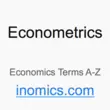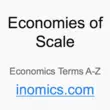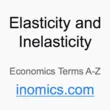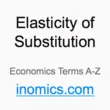-
- Economics Terms A-Z
- Posted 6 years ago
Econometrics
en it es de fr
-
- Economics Terms A-Z
- Posted 6 years ago
Economies of Scale
en it es de fr
-
- Economics Terms A-Z
- Posted 5 years ago
Edgeworth Box
en it es de fr
-
- Economics Terms A-Z
- Posted 6 years ago
Elasticity and Inelasticity
en it es de fr
-
- Economics Terms A-Z
- Posted 5 years ago
Elasticity of Substitution
en it es de fr
-
- Economics Terms A-Z
- Posted 2 years ago
Excludable Goods
en de fr
-
- Economics Term
- Posted 4 months ago
Exogenous and Endogenous
-
- Economics Terms A-Z
- Posted 5 years ago
Externalities
en it es de fr










